Search Results
Showing results 581 to 600 of 682
One-Cut Paper Stars
Source Institutions
Here's a very simple activity if you have paper and scissors: make one cut, unfold, and you have a beautiful star! A great way to learn about polygons and origami mathematics.
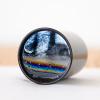
Soap Film on a Can
Source Institutions
The beautiful iridescent colors of a bubble in a can! With this Exploratorium Science Snack, create beautiful soap films on the open end of a can to see beautiful rainbows of color.
Hexagon Hunt
Source Institutions
This activity gets learners looking at 6-sided shapes in nature, including the cells of a beehive, as well as other shapes.

Vanishing Rods
Source Institutions
This is a quick activity/demonstration that introduces learners to the concept of index of refraction. Learners place stirring rods in a jar of water and notice they can see them clearly.
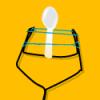
Catapult
Source Institutions
Build a catapult that transforms the potential energy of a twisted rubber band into kinetic energy. Experiment with design variations so that you can hit a target with a projectile.
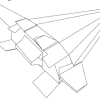
Proportionality: The X-Plane Generation
Source Institutions
In this activity, learners build a 1:140 "scale model" of NASA's X-33 Reusable Launch Vehicle (RLV) Technology Demonstrator, and investigate how the model dimensions compare to the real vehicle.

Bouncy Egg
Source Institutions
In this activity, learners explore how acids can dissolve eggshells leaving behind a membrane-covered bouncy egg.

Adaption Artistry
Source Institutions
In this creativity-based activity, learners imagine what the Earth will look like in the near and distant future, then design their own future habitat and creatures that may live there.
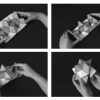
Exploring a Complex Space-Filling Shape
Source Institutions
In this activity, learners build a paper stellated rhombic dodecahedron, a three-dimensional 12-pointed star.
Pesticide Watch Card
Source Institutions
After learning that some of the chemicals we add to food crops may have harmful consequences on our health and the health of the environment, learners will create a pocket-sized card with their favori

DNA Detective
Source Institutions
This activity is about collecting and analyzing DNA as part of a criminal investigation.

Exploring Earth: Investigating Clouds
Source Institutions
“Exploring Earth: Investigating Clouds” is a hands-on activity in which visitors create a cloud in a bottle and explore it with laser light.

Your Sense of Taste: Discover the real taste of candy
Source Institutions
Your tongue can sense about 6 different flavors (salty, sweet, bitter, sour, umami/savory, and fat), but your nose provides a lot more "taste" information than you realize when you eat.
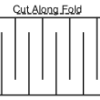
Great Openings: Slots, 35 Sense, and Hole In One
Source Institutions
These three short activities challenge groups to fit objects through paper and index cards: "Slots" presents the challenge for one learner to figure out which objects fit through a hole cut by another
Bend It, Break It
Source Institutions
In this activity (on pages 25-32 of PDF), learners make models of the inner ear out of pipe cleaners.
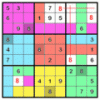
Color Sudoku
Source Institutions
The popular sudoku puzzles use numbers, but the game could played with any set of 9 different objects!

Critical Angle
Source Institutions
In this optics activity, learners examine how a transparent material such as glass or water can actually reflect light better than any mirror.
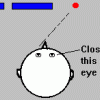
The Blind Spot
Source Institutions
In this activity (1st on the page), learners find their blind spot--the area on the retina without receptors that respond to light.
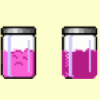
See It to Believe It: Visual Discrimination
Source Institutions
In this activity (12th on the page), learners investigate their ability to discriminate (see) different colors.
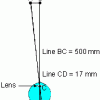
Measuring Your Blind Spot
Source Institutions
In this activity, learners calculate the width (horizontal diameter) of the blind spot on their retina. Learners make a blind spot tester using a piece of notebook paper.
